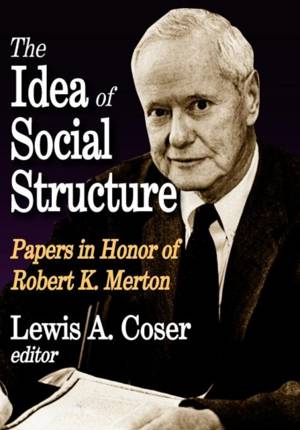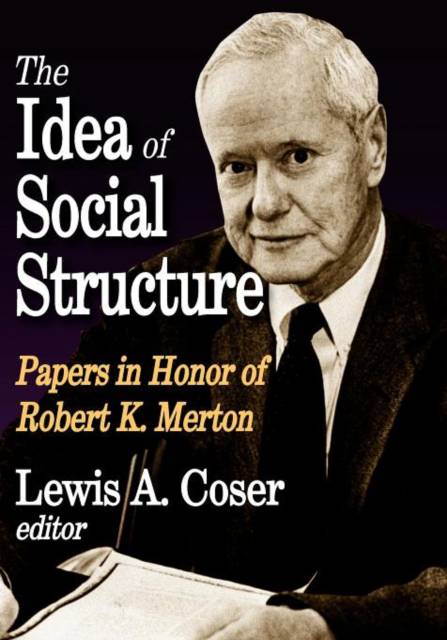
- Retrait gratuit dans votre magasin Club
- 7.000.000 titres dans notre catalogue
- Payer en toute sécurité
- Toujours un magasin près de chez vous
- Retrait gratuit dans votre magasin Club
- 7.000.0000 titres dans notre catalogue
- Payer en toute sécurité
- Toujours un magasin près de chez vous
The Idea of Social Structure
Papers in Honor of Robert K. Merton
Lewis A CoserDescription
Written and compiled by friends and former students, The Idea of Social Structure honors Robert K. Merton, considered one of the premier sociologists of the twentieth century. Along with Talcott Parsons and Marion J. Levy, Merton was emphatic in his use of the term "social structure"--however different they were in defining and refining the term. The chapters in this volume address many of Merton's diverse sociological theories and, in turn, his theories' impact upon a very large sociological territory.
The volume includes major statements on the context of working with Merton by Lewis A. Coser, Paul F. Lazarsfeld, Robert A. Nisbet, and Seymour Martin Lipset, as well as memorable statements covering Merton's interests in the sociology of knowledge and science, planning communities, medical education, relative deprivation, everyday life, political roles, and communication media. This is a powerful sourcebook for understanding the work of Merton and of his intellectual successors.
Nisbet called the decade of the 1930s among the most vital and creative periods in American history. It was certainly a period of intense struggle--political, military, and ideological. But the formation of modern sociology was without question one of the crowning achievements in the scientific evolution of the century. The volume is sharply focused on Merton's work and deeply appreciative of the nature of his contribution. It is a landmark effort in the study of sociology as history.
Spécifications
Parties prenantes
- Auteur(s) :
- Editeur:
Contenu
- Nombre de pages :
- 559
- Langue:
- Anglais
Caractéristiques
- EAN:
- 9781412847414
- Date de parution :
- 15-04-12
- Format:
- Livre broché
- Format numérique:
- Trade paperback (VS)
- Dimensions :
- 178 mm x 254 mm
- Poids :
- 957 g

Les avis
Nous publions uniquement les avis qui respectent les conditions requises. Consultez nos conditions pour les avis.






